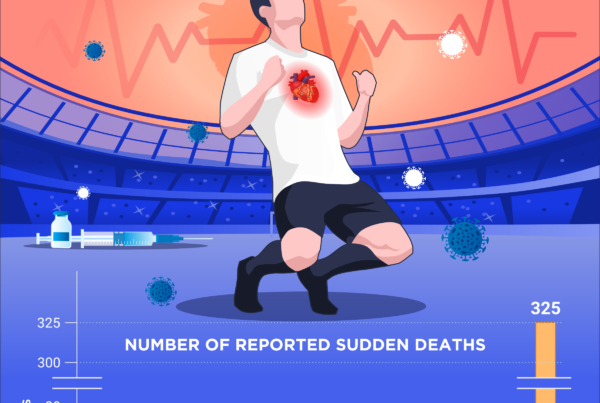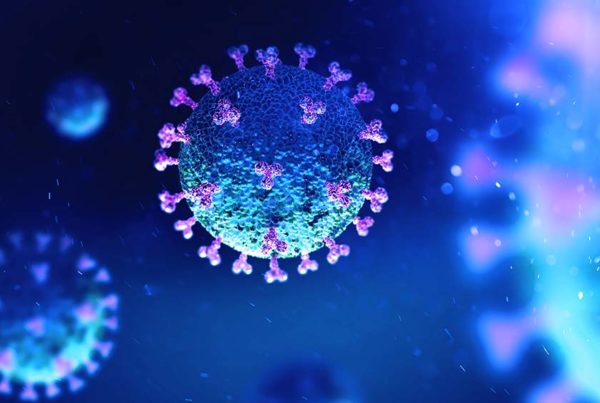
Despite the use of technology to explore genetic data, the elephant in the exam room remains the individual patient.
With millennials now middle-aged, the big health breakthrough of the century was supposed to be gene profiling. The idea was that by testing for potential inherited diseases more people could benefit from early treatment and costs would be reduced.
The problem with this plan was two-fold. First it focused on early detection as a means of “prevention” (this isn’t really prevention at all), and secondly it did not take into account that people are unique and their lifestyle has a profound effect on whether they will or won’t get a disease.
This was supposed to be the future of medicine and some people are still riding the bandwagon even though the wheels have come off it. It turns out this “New Medicine” is the same as the old, only bigger, not better.
At its most basic, the practice of medicine is the art and science of assessing, treating and preventing poor health. It is carried out in different ways by a variety of individual professionals. Other than specialties like surgery and dermatology, we can no longer characterize most practitioners by their degrees or titles, and many have adopted new medicine monikers.
While mainstream medicine is the primary driver of the world’s healthcare system, most other professions, including so-called alternative medicine, follow a very similar philosophical approach — a patient gets sick or injured and seeks care, is given a diagnosis, and treatment is rendered. New brands of medicine have evolved in recent years: from integrative, functional, personalized, and precision medicine to the use of combined or interchangeable terms, to name a few.
These cool-sounding names are sexy — wouldn’t we all like our healthcare to be precision-oriented, address functional illness and be personalized? Yes, but in most cases it’s none of these things. We’re still treated as a number, by our diagnosis, and now by our genes and big data.
Gene Data
Precision medicine in particular spawned huge businesses which attempt through research to harness gene data and apply it to an individual’s uniqueness. The promise of this precision approach has so far failed because, as researchers found, most of the genetic variation between individuals has little effect on health. Instead, lifestyle behavior is usually the primary influence on health and illness.
Most pain and chronic disease can be prevented and even treated successfully by the patient without much, if any, additional cost through better lifestyle habits. The practitioner’s role is to help figure out details of problems that might remain, how to fix them, and to teach patients about them (the word doctor means teacher).
But the model of new medicine’s big business is, “The truth is out there, so let’s raise more public money to find it.” Yet, services are no better. Healthcare will never be health care until the philosophy changes from waiting for disease or illness to appear then treating it, to making it a priority to avoid it. Virtually everyone on all levels of healthcare knows most chronic disease is preventable, and therefore can be avoided.
In medicine the term prevention is misleading. It’s often confused with screening for disease. Finding a disease in its early stage is certainly beneficial, but actively preventing it through a healthy lifestyle is significantly better. How will genetics help?
The massive investment in genetics has thus far not succeeded in preventing lifestyle-related illness, but instead confirmed previous notions that simple genetic causes are not generally responsible for common chronic diseases. Money is now diverted to searching for very rare genetic conditions, while simple lifestyle measures remain unchecked allowing the long list of chronic diseases to remain as indicated by a growing common cause, the overfat pandemic.
Despite its popularity, genetic testing does not seem to improve patient compliance with risk-avoiding behaviors, but instead increases office visits, laboratory tests, and patient anxiety. For some, it even provides a handy excuse for being unhealthy.
Professor of genetics Ken Weiss, writing in Issues in Science and Technology (2017) says that if the goal is to improve health, let’s spend the money on dietary and exercise information as we know they reduce the diseases that we’re spending so much money to try to treat as if they were genetic.
Big Data Errors
Data-collection companies rake in big money while gathering information in relation to genes and patient care. With all this data, Las Vegas odds-makers could easily predict your disease risk, treatment, and outcomes as well or better than your doctor, and without ever seeing you. It further takes personalized care out of medicine and simply plays the odds.
But big data also makes big errors.
Even a simple error in record-keeping can severely affect the whole system, although money is still made by all the businesses associated with the complex. It’s the patient who suffers the consequences in the form of poor diagnosis or bad care. Dr. Richard Friedberg, past president of the College of American Pathologists, and other experts refer to this problem simply as “garbage in garbage out.”
Many errors evolve from the health-record business. The relatively new electronic health record (EHR, sometimes referred to as health information technology) is another part of the new medicine. It was supposed to improve healthcare. Quality care depends on the integrity, reliability, and accuracy of health information. But the EHR has led to much more bad data, in turn leading to increased safety hazards that compromise health and healthcare. Many experts are sounding the alarm that the new system failed to achieve projected benefits and cost savings due to poor design and implementation.
While medical errors such as those with drugs, misdiagnosis or negligence are well-documented, we are now seeing a new wave of errors related to medical data. These EHR-related errors include lost or incorrect entries, significantly increasing the potential for medical error, harm, or death. Unfortunately, there are no regulatory requirements to evaluate the efficacy and safety of the EHR system, no accountability between companies that develop the systems and users, and adverse outcomes are not systematically and consistently tracked. The vicious cycle of bad medical care and increased waste and cost is maintained.
In the U.S. alone, wasted healthcare costs such as unnecessary testing and treatment occurring at the current rate would amount to $7.5 trillion over the next decade.
With so much noise in all this big data, and the seemingly little errors that grow like tumors, too few pay attention to the elephant in the room — the patient. You’re no longer “just a number” — you’re now a very long string of numbers that’s often proprietary and derived from the very blood, biopsy or other tissue tests obtained by your practitioner. New med companies who evaluate your body parts won’t share this algorithm with others, including you or your doctor. Sure, companies use this data to recommend a best-case scenario treatment based on statistics, but typically bypass your individual needs.
While targeted, specific, and personalized sounds like better care, the new medicine is much more expensive than historically successful preventive interventions that have been applied broadly to populations, such as smoking cessation.
What to do? Don’t be just a data point but an active participant in your health care. Use nutrition, exercise and stress-management as tools to prevent and treat most chronic conditions. Consider your individual signs and symptoms, tracing that information to find the causes, adjusting lifestyle to improve health. The MAF App and online MAF 8-Step program can help guide you in this endeavor.
Partial bibliography
Bowman S. Impact of Electronic Health Record Systems on Information Integrity: Quality and Safety Implications. Perspect Health Inf Manag. 2013 Fall; 10(Fall): 1c.
Joyner MJ, Paneth N. Seven Questions for Personalized Medicine. JAMA. 2015 Sep 8;314(10):999-1000.
Kellermann AL, Jones SS. What it will take to achieve the as-yet-unfulfilled promises of health information technology. Health Aff (Millwood). 2013 Jan; 32(1):63-8.
Sullivan June M. Recent Developments and Future Trends in Electronic Medical and Personal Health Records. The Health Law. 2007;19:16.
Weiss KM. Is Precision Medicine Possible? Issues in Science and Technology. October 9, 2017.








